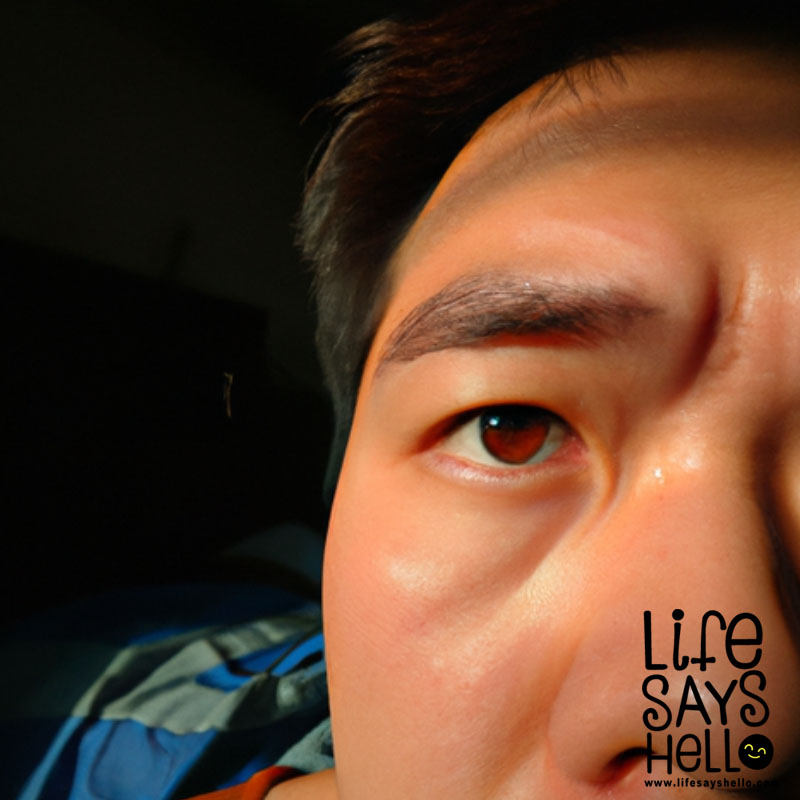The Science Behind Why You Need 8 Hours of Sleep

Not getting enough sleep is a common problem today, with many adults struggling to get the recommended 7-9 hours per night. However, the benefits of adequate sleep go far beyond just feeling well-rested. Getting a full 8 hours has been scientifically proven to provide remarkable health benefits for both your body and mind.
Physical Health Benefits of 8 Hours of Sleep
When you sleep, it may feel like you're shutting your body down for the night. But in reality, your body is working hard during those nighttime hours. During sleep is when your body repairs, restores and rejuvenates itself. Without adequate sleep, these important functions cannot be completed.
Sleep Allows Your Body to Repair Itself
While you sleep, your body produces hormones that help grow muscle, repair cells and tissues, and build up your immune system. Growth hormone is primarily secreted during deep sleep. This hormone helps children develop properly and helps adults maintain muscle mass and healthy bones and tissues. Without enough sleep, your body makes less growth hormone and the repair processes are impaired.
Sleep Keeps Your Heart Healthy
Lack of sleep negatively impacts heart health in several ways. It raises blood pressure and heart rate, which stresses the cardiovascular system over time. One study found that people who slept less than 5 hours per night had a 45% higher risk of developing heart disease. Other research shows sleep deprivation also increases inflammation, which damages blood vessels. Getting enough sleep helps keep your heart healthy and reduces risk of cardiovascular disease.
Sleep Can Help You Maintain a Healthy Weight
Too little sleep is linked to weight gain and obesity. That's because when you're sleep deprived, hormones that regulate hunger and fullness go out of balance. This causes an increase in appetite, often for foods high in calories and carbohydrates. At the same time, lack of sleep reduces resting metabolic rate, so your body burns fewer calories. Getting 8 hours gives your body the time it needs to stabilize these hormones and helps you maintain a healthy weight.
Sleep Prevents Diabetes and High Blood Pressure
Inadequate sleep negatively impacts how your body processes glucose and insulin, which can eventually lead to diabetes. Even after just several days of reduced sleep, researchers see impaired glucose tolerance and insulin sensitivity. High blood pressure is also closely tied to lack of sleep. When you sleep, blood pressure naturally goes down. But if you're not sleeping enough, your blood pressure remains elevated. Over time, this takes a toll on your cardiovascular system.
Sleep Strengthens Your Immune System
While you sleep, your immune system produces protective, infection-fighting antibodies and cells. It uses these to combat foreign invaders like bacteria and viruses. Without sufficient sleep, your immune system doesn't have the time to build up its forces, leaving you more susceptible to colds and other illnesses. Getting at least 8 hours ensures strong immune function.
Mental Health Benefits of 8 Hours of Sleep
In addition to physical health, getting enough sleep is imperative for cognitive function, mental health and emotional well-being. Your brain stays active while you sleep to recharge for the next day. Missing out on sleep takes a major toll on brain power.
Sleep Enhances Learning and Memory
During sleep, the brain consolidates memories and new information from the day. It transfers short-term memories into long-term ones so you can recall them later. Without this consolidation phase, new memories are rapidly forgotten. Sleep also helps sharpen attention, reasoning, and problem-solving skills. Getting 8 hours helps you retain information and perform better intellectually.
Sleep Balances Emotions and Reduces Stress
Lack of sleep causes emotional changes including irritability, anxiety, depression, and moodiness. This is partially caused by the amygdala, the part of the brain that processes emotions, becoming overactive when deprived of sleep. During sleep, the amygdala resets along with areas of the brain tied to stress. Getting enough sleep leaves you feeling more positive, balanced, and relaxed.
Sleep Prevents Mental Health Issues
Ongoing sleep loss is linked to long term mental health consequences including anxiety disorders and clinical depression. One study found that people who regularly slept fewer than 5 hours per night had a fivefold increase in depression risk compared to those getting 7-8 hours. Without adequate sleep, mental health deteriorates over time.
How Lack of Sleep Impacts Productivity
You've probably noticed that it's much harder to focus and get things done when you're tired. Many aspects of cognitive performance and productivity take a hit when you're sleep deprived.
Sleep Loss Lowers Focus and Concentration
Attention and vigilance are reduced dramatically by sleep loss. Reaction times slow down and you're more easily distracted. This makes it very difficult to stay focused on work throughout the day when you haven't gotten enough sleep. Getting 8 hours allows you to concentrate more easily for extended periods.
Sleep Deprivation Hinders Decision Making
Judgement, reasoning, and problem solving skills suffer when you're tired. This makes it harder to make sound decisions. Insufficient sleep also increases impulsivity and risk taking. With your decision making abilities impaired, you're more likely to make poor choices when sleep deprived. After a full night of sleep, you can think through decisions rationally and make better choices.
Sleep Loss Reduces Efficiency and Performance
Studies show that sleep loss significantly hinders job performance. Tasks take longer and you make more mistakes when tired. This cuts into productivity and efficiency. With inadequate rest, you simply can't operate at full capacity. Getting at least 8 hours of sleep ensures you're performing your best throughout the day.
Tips for Getting Better Sleep
Now that you know the many benefits of getting enough shut-eye, here are some tips to improve your sleep:
Stick to a regular sleep-wake schedule. Going to bed and waking up at the same time reinforces your body's natural sleep-wake rhythm.
Develop a relaxing pre-bed routine. Activities like reading, meditating, or taking a bath before bed signal to your body it's time to wind down.
Limit screen time before bed. Screens emit blue light that suppresses melatonin, making it hard to fall asleep.
Keep your bedroom dark, cool, and quiet. An optimal sleep environment helps you fall asleep faster and stay asleep.
Avoid caffeine late in the day. Caffeine can linger in your system for 8-14 hours, disrupting sleep if consumed too late.
Limit alcohol before bed. While alcohol makes you drowsy at first, it leads to poor quality sleep later in the night.
Exercise regularly, but not before bed. Exercise during the day helps you fall asleep more easily at night. But vigorous activity too close to bedtime can interfere with sleep.
Wind down mentally before bed. Jotting down a to-do list and setting the next day's plans will help clear your mind for sleep.
The Takeaway: Why 8 Hours of Sleep is Critical
Sleep plays an absolutely vital role in all aspects of health and daily performance. Getting sufficient high-quality sleep ensures your body can fully repair and restore itself each night. It allows your brain to consolidate memories, process emotions, think clearly, and make good decisions. Sleep also strengthens your immune system, heart health, mental health, and more.
Without adequate rest, both the body and mind suffer. Insufficient sleep raises your risk for medical conditions like obesity, heart disease, high blood pressure, and diabetes. It impairs concentration, productivity, and decision making. Ongoing sleep deficiency causes long term mental health issues like anxiety and depression.
After reading the extensive research, it's clear that getting a full 8 hours is not just about feeling refreshed. It's critical for reducing disease risk, optimizing mental and physical performance, and living a healthy, happy life. Adults should make the effort to prioritize sleep and maintain a consistent sleep-wake schedule.
Aim for 8 hours each night. Turn it into a non-negotiable by setting a regular bedtime alarm. Follow good sleep hygiene habits like limiting screens, keeping your room dark and cool, avoiding late day caffeine, and more. If you currently don't get 8 hours, work on going to bed earlier in gradual increments. Your mind and body will thank you.




Comments